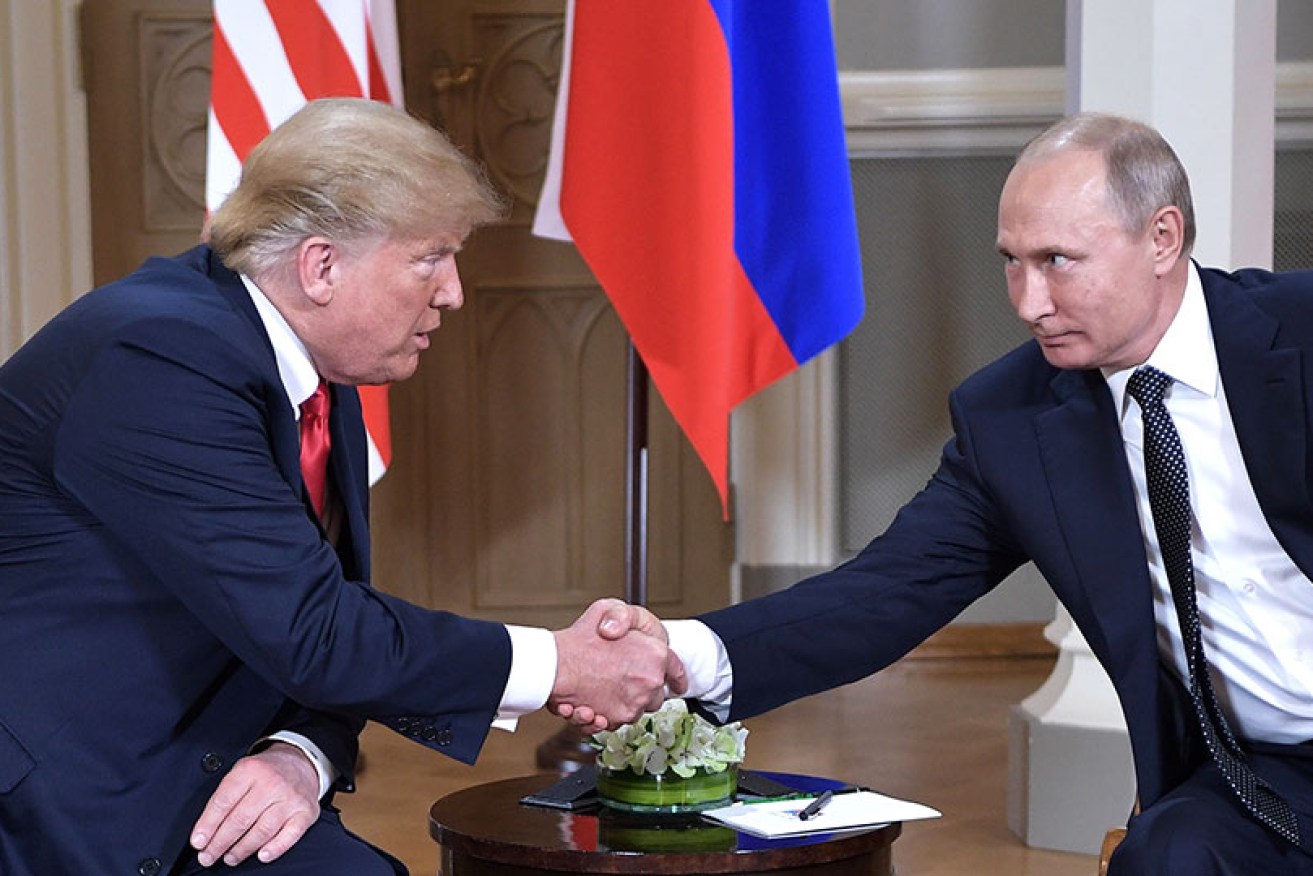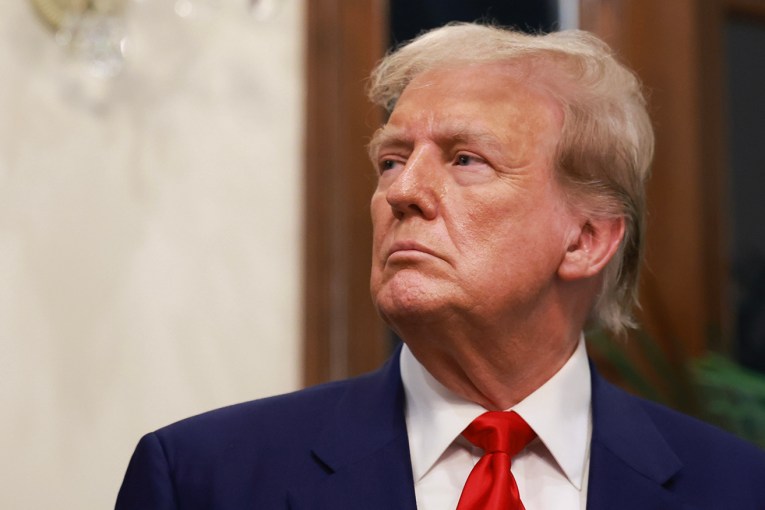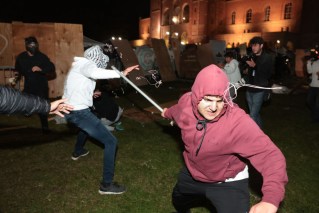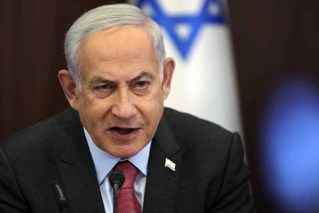Trump’s inaction on Russia-Ukraine conflict could give Putin green light for more attacks, experts say


Trump has expressed his respect for Putin while casting doubt on Ukraine's honesty. Photo: Getty
A failure by the US to respond adequately to Russia’s latest acts of aggression against Ukraine has sparked fears it has given President Vladimir Putin the green light to launch further attacks on its smaller neighbour.
Dr John Besemeres, Research Fellow at the Australian National University Centre for European Studies, gave the stark warning after Russia’s coast guard recently opened fire on, and seized, three Ukrainian naval vessels near the Kerch Strait leading into the Sea of Azov.
US President Donald Trump cancelled his planned meeting with Mr Putin at the G20 summit in Argentina last weekend “based on the fact that the ships and sailors have not been returned to Ukraine from Russia”.
Instead, he met Australian Prime Minister Scott Morrison.
But without clear condemnation of Russia’s actions and a further strengthening of sanctions, Dr Besemeres said Mr Putin may try to “get away with more” by “possibly preparing for another outright military intervention at some propitious moment when Western attention is focused elsewhere”.
Dr Besemeres said Russia has been looking to increase its pressure on Ukraine by crippling its trade from and into the vital port cities of Mariupol and Berdyansk on the northern littoral of the Sea of Azov.
Last Wednesday, European Union members Germany, Austria, Poland and Estonia urged for sanctions against Russia.
It came a day after Ukraine’s parliament voted in favour of martial law that put the military in charge of regions it deemed most vulnerable to an attack from Russia.

Ukrainian President Petro Poroshenko shakes hands with MPs after they voted to impose martial law in the country. Photo: Getty
Dr Besemeres maintains that sanctions in the past have clearly not hit Russia hard enough.
He said Mr Trump was “almost down on his hands and knees in his eagerness to please Putin” during a summit meeting in Helsinki on July 16.
He said the US was better placed than the EU to impose tough, fresh sanctions on Russia, because it has less to lose, and a simpler decision-making process.
Unlike the US, the EU must renew sanctions every six months and some members favour lifting sanctions on Russia.
“Though Trump’s national security officials – ‘the adults in the room’ – and Congress have ensured solid responses in the past, this may not happen this time if Trump remains eager to strike some deal with Putin,” Dr Besemeres said.
Based on the fact that the ships and sailors have not been returned to Ukraine from Russia, I have decided it would be best for all parties concerned to cancel my previously scheduled meeting….
— Donald J. Trump (@realDonaldTrump) November 29, 2018
Dr Elizabeth Buchanan, Research Fellow at the ANU Centre for European Studies, said Mr Trump’s tweet about not going ahead with the previously scheduled meeting with Mr Putin “further bolsters Russia’s position in the conflict with Ukraine”.
“The soggy, although not unexpected, response to the newest escalation in the Russia-Ukraine conflict will no doubt see Putin continue to operate without Western push-back in the region,” Dr Buchanan said.
She said the conflict remains “in the too-hard basket for the West”, adding that Mr Trump “will no doubt” further say both Ukraine and Russia are in the wrong, relegating the Russia-Ukraine conflict to a “bilateral squabble”.
“Without US leadership on the issue we can expect the conflict to further fall to the background, popping up in times such as this recent naval incident, then buried in our 24-hour news cycle.
The EU and NATO will have very little effect on the escalating conflict, she added.
“Europe is more and more divided in terms of how to approach the situation, and Brussels is aware of the increasing economic stakes in further isolating Russia,” Dr Buchanan said.
“Much of Europe now has an interest in keeping relations with Moscow ‘business as usual’.”
ANU School of Politics and International Relations professor Dr Benjamin Goldsmith said Mr Putin is using Russia’s military superiority to “slowly but surely” weaken Ukraine.
“Russia knows that it can take its time given the current geo-strategic situation, in particular the current leadership in the US,” Dr Goldsmith said.
“If Russia can prevent Ukraine from accessing its naval base in Mariupol (where these Ukrainian naval shops were headed) then it can increase the possibility of taking over the city, which would be a major blow and could be a major escalation in the conflict.”








